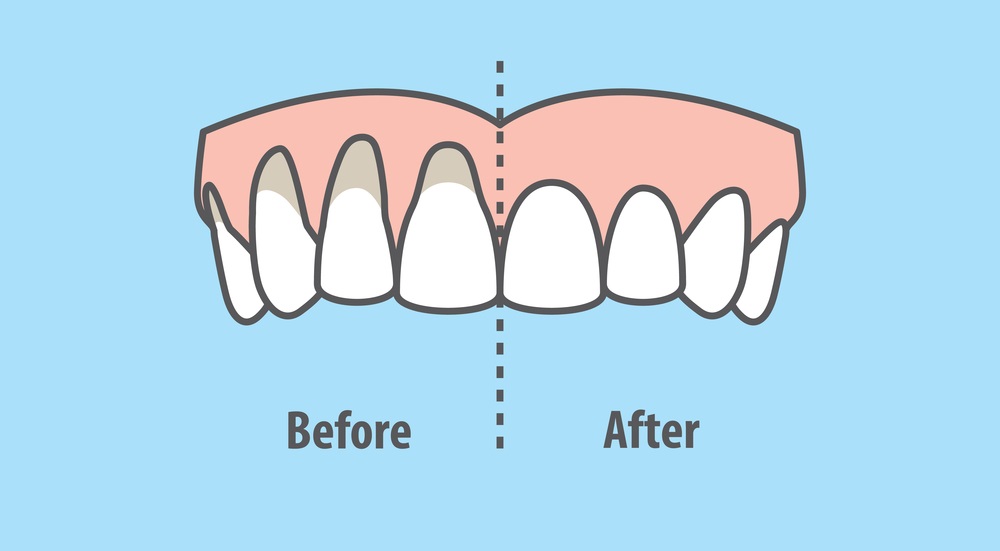 Gum recession is a type of gum disease that occurs when your gums wear away and pull back from your teeth. This will cause more of your teeth to be exposed and pave the way for more bacterial build-up between the gums and the teeth.
Gum recession is a type of gum disease that occurs when your gums wear away and pull back from your teeth. This will cause more of your teeth to be exposed and pave the way for more bacterial build-up between the gums and the teeth.
Gum recession will be evident by pain near the gum line, sensitivity to tempered foods and drinks, or pain when brushing or flossing. It can lead to a few more serious issues, like inflammation, cavities, and tooth loss.
It could affect one tooth, or it may be affecting many teeth at once. Gum recession occurs in about 70% of adults 65 and older. Though it is more common in those older than 30, gum recession can begin its process at a much earlier age due to several circumstances for millions of people.
Tobacco Use
You’ve probably heard this a million times, but it remains to be factual: smoking causes gum disease. Tobacco use of any kind makes the body more susceptible to illness and stifles the healing process. Those who smoke also have decreased levels of vitamin C, which helps with the creation of collagen (the general makeup of gums), and the overall health of the immune system.
Poor Dental Hygiene
Not brushing your teeth or brushing improperly can cause gum recession. Plaque and tartar buildup from the lack of brushing weakens the integrity of your teeth and will cause gums to pull back. Try not to brush too aggressively either though, as brushing too hard will also cause damage to the enamel of your teeth and will cause your gums to recede.
Diabetes
The risk of gum recession is higher in those with diabetes. The changes in blood vessels reduce the flow of blood and nutrients to various parts of the body, including the teeth and gums. When diabetes isn’t treated thoroughly, blood sugar can become too high and will excrete through salivation in the mouth. This causes more bacterial build-up and recessed gums.
Hormonal Fluctuations
Changes in hormone levels cause gums to be more sensitive. Conditions like pregnancy, menopause, and puberty can make a person more susceptible to gum recession during various life stages. Increased progesterone levels from pregnancy lead to a higher chance of plaque and bacteria pile-up, which can cause gum recession and gingivitis.
Conclusion
Gums can’t grow back, so once they’ve recessed too far, it could be too late, save for surgical treatment or antibiotics. Fortunately, there are ways to prevent a recession from occurring or getting worse.
Good oral hygiene is a great place to start to prevent gum recession. Brush your teeth twice a day and floss once daily. Use a soft-bristled toothbrush to avoid brushing too hard and follow up with mouthwash with antimicrobial ingredients. It’s a good idea to visit a dentist regularly to have the possibility of gum recession diagnosed and cared for immediately. Finally, for many other reasons than gum recession, don’t use tobacco of any kind.







